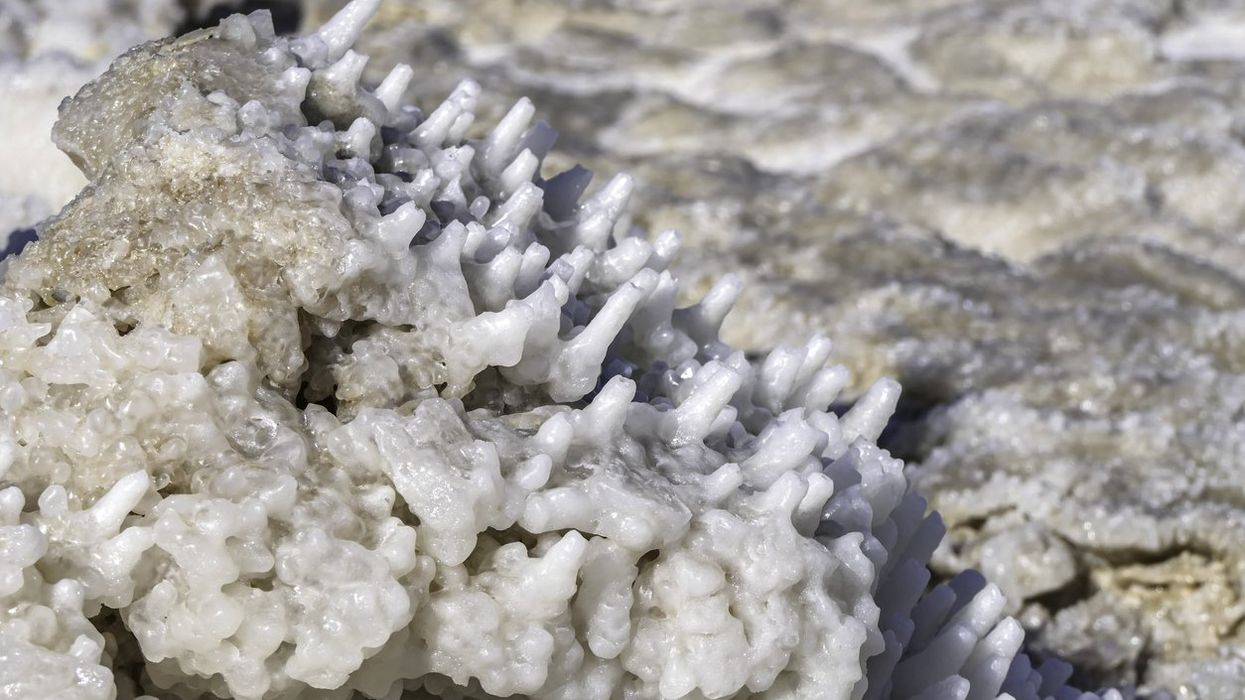Science & Tech
Harry Fletcher
Aug 24, 2023

iStock
The key to discovering the secrets of life at the bottom of the ocean 150 million years ago has been discovered, and it was trapped inside ancient salt formations this whole time.
Experts have been able to uncover the Earth's geological history y studying tiny water particles which have been preserved in crystals for millions of years.
It’s all to do with analysing the amount of lithium which is trapped in samples rock salt. As it turns out, the level of lithium can tell us far more about atmospheric conditions in the oceans over the ages than most of us previously realised.
Geochemists Mebrahtu Weldeghebriel of Princeton University and Binghamton University and Tim Lowenstein of Binghamton University have published their findings in a new study.
The rock salt they studied, known as marine halite, came from across the world including the US, Europe, Asia and Africa. A total of 639 samples were taken from 65 halite crystals dating back to 150 million years ago.
"There is a close link between ocean chemistry and atmospheric chemistry," Weldeghebriel said.
“Whatever changes happen in the ocean also reflect what's happening in the atmosphere."
"The oceans and atmosphere are connected to one another, and how they change is related," Lowenstein added. "Everything is connected."
Most notably, their findings have helped to create a better understanding of tectonic movement on the seafloor. The reason the presence of lithium was so important is due to what it tells us about hydrothermal activity. The amount in the water indicates the levels of chemicals and heat which was being released into the oceans by vents between tectonic plates.
As tectonic plate activity declined, there was a global drop in lithium levels. Instead, it was replaced by a rise in magnesium and calcium. The reduction in activity would also have meant less carbon dioxide being released into the atmosphere, which could potentially have been a factor in the temperature drop which resulted in the ice age.
Sign up for our free Indy100 weekly newsletter
Have your say in our news democracy. Click the upvote icon at the top of the page to help raise this article through the indy100 rankings.
Top 100
The Conversation (0)













